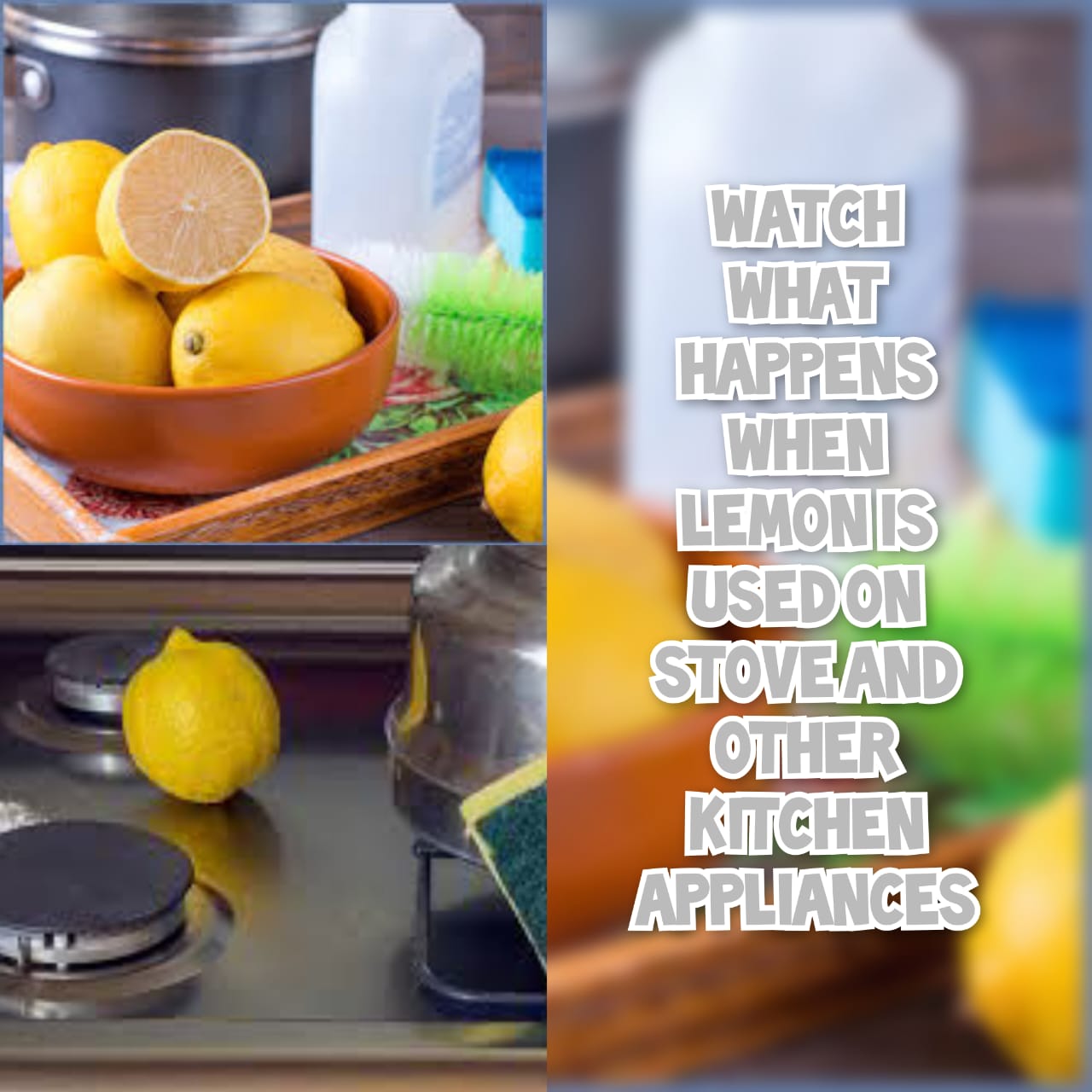Watch What Happens When Lemon Is Used On Stove and Other Kitchen Appliances
You should reconsider your belief that lemons are only useful for cooking or adding taste to tea. One of nature’s most potent natural cleansers is this unassuming fruit.
Lemons can cut through grease, kill germs, and brighten dull surfaces without the need of harsh chemicals since they are full of citric acid, antibacterial qualities, and a clean, fresh aroma. Let’s look at some fantastic methods to use lemon in your kitchen cleaning regimen, as well as how rubbing a lemon on your stovetop may restore its shine.
How to Clean Your Stove Top with Lemon (Step-by-Step):
You’ll Need:
1 large lemon (halved)
Baking soda (optional, for tough grease)
A clean cloth or sponge
Instructions:
Cut and Prep: Slice a lemon in half and remove any visible seeds.
Apply the Lemon: Rub the cut side of the lemon directly onto your stovetop, focusing on greasy or stained areas.
Add Baking Soda (Optional): Sprinkle a little baking soda over stubborn grease, then rub again with the lemon. The fizzing action helps lift grime easily.
Let It Sit: Allow the lemon juice to sit for about 5 minutes to break down grease and residue.
Wipe Clean: Use a damp cloth or sponge to wipe away the juice and loosened dirt.
Polish (Optional): Buff the surface with a dry microfiber cloth for a sparkling finish.
Your stove will look cleaner, smell amazing, and be free from grease naturally!
Other Brilliant Kitchen Uses for Lemons:
Clean Your Microwave:
Fill a bowl with water and lemon slices. Microwave for 2–3 minutes.
The steam loosens grime — just wipe clean!
Deodorize the Fridge:
Place a small bowl of lemon slices or lemon juice inside to neutralize bad odors.
Sanitize Cutting Boards:
Sprinkle coarse salt on your cutting board, then scrub with half a lemon to remove stains and bacteria.
Polish Stainless Steel:
Mix lemon juice with a few drops of olive oil. Apply with a soft cloth for a streak-free shine.
Remove Food Odors from Hands:
Rub your hands with lemon juice after chopping garlic, onions, or fish. Rinse with warm water.
How It Works:
Lemon juice contains citric acid, a natural degreaser and antibacterial agent that dissolves buildup and kills germs. The mild acidity helps break down fats and mineral deposits while leaving behind a refreshing citrus scent. The natural oils in lemon peel also provide a light polish to metal and glass surfaces.
Safety Tips & Cautions:
While lemons are natural and effective, they are still acidic — so keep these safety notes in mind:
Avoid on Natural Stone:
Never use lemon on marble, granite, or other porous stone surfaces — it can etch or dull the finish.
Test Before Using:
Try it on a small, hidden area first to make sure it doesn’t discolor or damage the surface.
Use Gloves for Sensitive Skin:
The acid in lemon juice can irritate cuts or sensitive skin. Wear gloves if needed.
Rinse Metals Thoroughly:
Do not let lemon juice sit too long on metal surfaces like aluminum or copper — it can cause tarnish or corrosion.
Keep Away from Eyes:
Lemon juice can sting if it splashes into your eyes. Wipe your hands before touching your face.
Store Safely:
If you make a lemon cleaning solution, keep it refrigerated and use within a week to avoid spoilage.
Concluding Remarks:
In addition to being efficient, using lemons for cleaning is cheap, chemical-free, and environmentally beneficial. This small fruit demonstrates that natural remedies are frequently the most effective, whether you’re cleaning your kitchen gadgets, freshening your refrigerator, or dealing with a greasy stovetop. The next time your kitchen needs a makeover, grab a lemon and let it do the trick instead of using harsh sprays.

